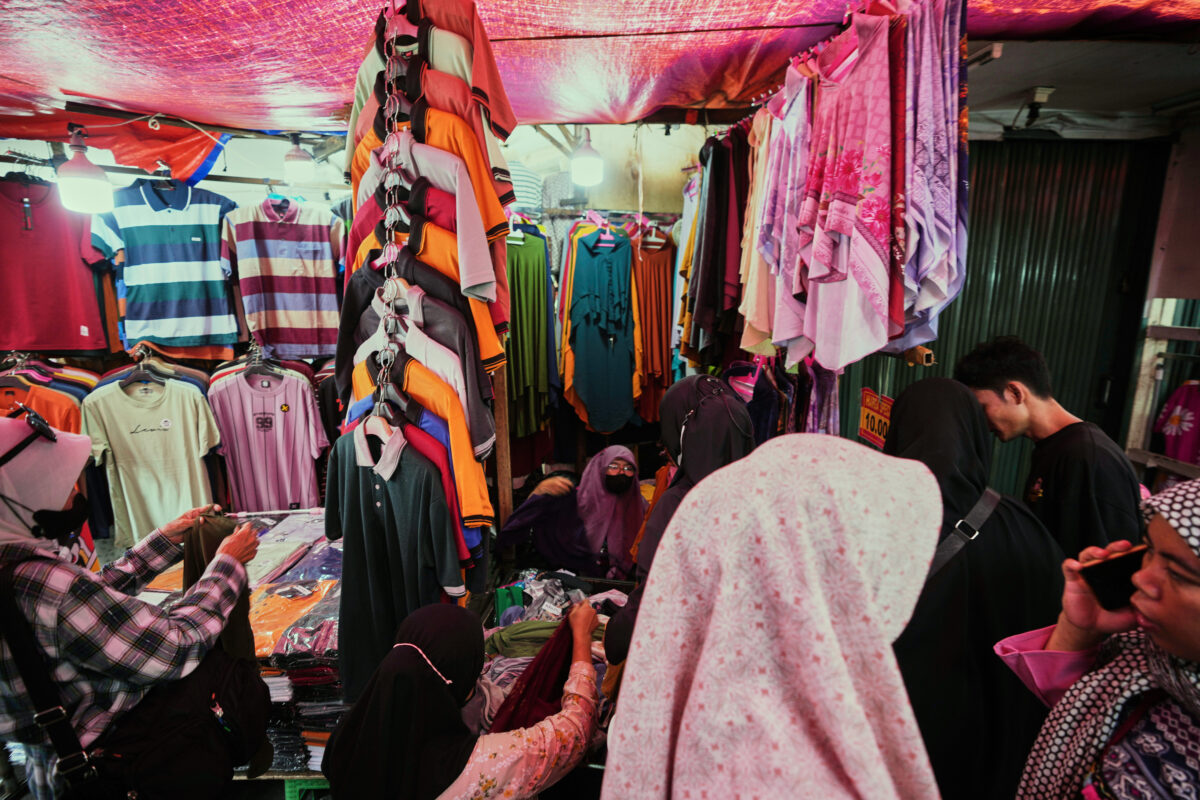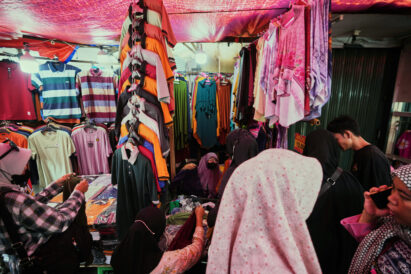GET OUT THERE: Do not follow this wretched travel advice
- People browse for clothings at Tanah Abang textile market in Jakarta, Indonesia, Thursday, April 10, 2025.
- Blake Snow

Tatan Syuflana, Associated Press
People browse for clothings at Tanah Abang textile market in Jakarta, Indonesia, Thursday, April 10, 2025.
I recently stumbled upon a piece of travel “advice” that’s as bad as seeing a passenger walk into an airplane bathroom while barefoot. It went something like this: “While it may be tempting to buy an ethnic shirt or dress that reflects a country’s heritage, it probably isn’t a good idea. Doing so may be seen as cultural appropriation, even if no one accuses you of it directly.”
Excuse me? “Seen as”? “Even if no one accuses you”? Are we just preemptively assuming guilt now? If not, are there cultural fashion police I’m not aware of, checking non-existent ethnic identity cards whenever they see someone of a certain race not conforming to what that race should or should not be wearing?
Of course not.
So let me put this plainly: If you’re legally able to buy something abroad — be it a colorful kimono, a dashing dashiki, a cool piece of kente, or alpaca socks so cozy they whisper sweet nothings to your feet — you totally can. That’s how buying things works. It’s literally commerce. Trade. Global participation. A bazaar of cultural appreciation, not a courtroom.
Let’s get one thing straight. The majority of artisans around the world aren’t sitting in their workshops hoping no one buys their stuff. They want you to buy their wares. That beautiful embroidered blouse? Hand-stitched by someone’s abuela who’s trying to pay her bills and maybe, just maybe, send her kid to school with shoes that match. She’s not worried about your “appropriation.” She’s hoping you pick the red one because it brings out your eyes and makes you smell like foreign currency.

Photo supplied
Blake Snow
Now, sure, you don’t want to be that tourist. You know the one — dancing through a sacred temple in a feathered headdress like they’re auditioning for Coachella. Yes, there’s a line between appreciation and disrespect, and no, that line isn’t always bright neon with road signs. So do a little homework. Don’t treat someone’s cultural symbol like it’s a novelty wig.
But if you see a stunning garment made locally, sold legally, and worn joyfully by the people around you? Buy the dang thing. Wear it. Love it. Tell people where it’s from. That’s not stealing — that’s sharing. That’s what travel is.
Also, if we’re going to clutch our pearls over people wearing things from cultures not their own, what exactly do we do with half of Western fashion? Denim? Not American (although jeans are). Scarves? Middle Eastern origin. T-shirts? German engineering, baby. Flip-flops? Japanese zōri. Should we just wear beige jumpsuits now to avoid offending the ghost of global textiles past?
No thanks. I’ll take the risk. And so should you.
So next time you’re in Morocco and that buttery-soft leather jacket is calling your name, don’t hesitate. Buy it. When you’re in India and a silk sari makes you gasp audibly, buy it. When in Mexico, if that colorful serape or sombrero makes you smile like you just tasted churros for the first time — buy it.
You don’t need permission to enjoy the world. You just need respect, curiosity, and maybe a little room in your carry-on.
Happy shopping, world citizen.
Blake Snow contributes to fancy publications and Fortune 500 companies as a bodacious writer-for-hire and seasoned travel journalist to all seven continents. He lives in Provo with his wife, five children and one ferocious chihuahua.




